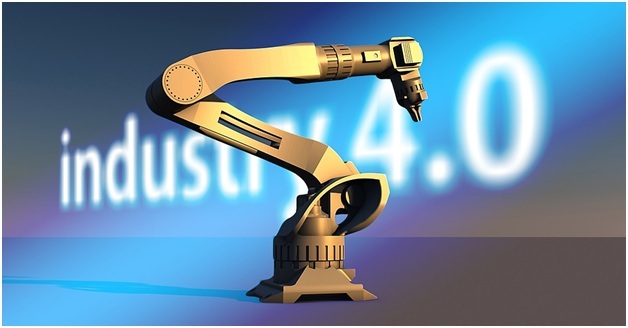It is fascinating how technology is always evolving. It is not just the evolution of technology that makes ground-breaking innovation possible; it is mostly about how industries adopt these technologies and incorporate them to optimize business operations. Manufacturing is one such field that has been growing and revolutionizing operations over the last few years. For manufacturing leaders, the past few years have brought new operating landscapes that comprise long-standing patterns. It is quite necessary to adopt the latest techniques and keep growing; those who did not evolve with time are now out of business. On the other side, those who are game changers in this field have manufactured a whole new range of products from phones to EVs.
Industry 4.0, the challenges and the opportunities
Today, the world is more connected than ever. Technology is not only synchronizing the connection between people but also between machines and devices on a global scale. In what we call Industry 4.0, commonly referred as the fourth industrial revolution spearheaded by the infusion of Internet of Things (IoT), data and computing power, technologies such as Machine Learning (ML) Artificial Intelligence (AI), and industrial automation have already started to permeate and alter the course of every layer of the manufacturing industry. Smart Manufacturing is one of the industrial revolutions that is the intelligent, real-time optimization and orchestration of physical, business, and digital processes across the value chain and within factories.
The technology required under smart manufacturing is affordable, but the implementation cost is yet serving as the barrier for many industrialists and wide adoption. Businesses are increasingly turning to machine-to-machine communications (M2M) and analytics, as clean data becomes a prerequisite for companies for productivity. By making a switch to M2M, manufacturers can reduce costs, optimize, and integrate processes, and get comprehensive insights into their manufacturing processes. Automation is not everything under IoT / Industry 4.0- mistake proofing and continuous improvement drives are equally important which can be effectively implemented rather than completely changing manufacturing processes. Together, these new capabilities will carry enterprises into the digital age, seamlessly transforming organizations and compounding business value.
Where does India stand currently?
In India, the Government is trying to create a conducive ecosystem for manufacturing and exporting electronics goods like Television, Closed Circuits, TVs, Air Conditioners with the help of members of the Electronics and Computer Software Export Promotion Council. India only shared 2.84% in the world manufacturing value-added till 2018. The manufacturing sector contributes 17% of GDP, with the vision statement increasing the share to 25% by this year-end. It is imperative to understand why China is the manufacturing hub and India lacks in the process. India needs a policy frame to change the ground realities.
One of the primary reasons India lacks in the manufacturing sector is the lack of skilled human resources. The vast diversity of the country makes it difficult and complicated to understand the working area. The manufacturing quality also compromises because of the lack of proper education and training. However, products can be manufactured of good quality at a reasonable cost.
How smart manufacturing is aiding companies?
With Industry 4.0, smart automation is coming to aid the companies for faster production and increased operational efficiency. The concept of Smart manufacturing has been changing and evolving among expert practitioners, early adopters, and industry strategists. Manufacturers are now rethinking a competitive advantage for the post-pandemic situation by applying hybrid cloud and Artificial Intelligence to build agility, intelligence, and automation across key functional areas.
Industry 4.0 smart automation increases product quality and productivity and decreases the downtime and revenues that go with it. The Indian automation sector is worth $2 Billion, according to industry estimates. Engineering giants Larsen and Toubro are rapidly automating shop floors and construction sites. On the shop floor, welding is not done by human resources, even down to maintaining the right temperature.
The trends under smart automation that will change the future of manufacturing are:
Managing Supply Chains
Smart automation’s advanced technologies automate the analysis and collection of machine data that enable the predictive ability to anticipate and correct the failures and before they occur.
Today without automation facilities, the supply chain is highly complex, and it is difficult for enterprises to monitor progress, predict, and lower the risk. The data analytics and visualization tools help improve the supply chain. Supply chain management apps can be accessed through any tablet, smartphone, or computer, simplifying the supply chain by bringing together the latest in cloud, big data, graph, and mobile technologies to deliver accurate and real-time information.
Cloud Computing
Cloud computing is an on-demand computing service used for data (cloud) storage with computing power without direct user management. In a cloud-based solution, productivity can be tracked remotely from anywhere and update the supplier and manufacturer daily. Also, operational data is accumulated automatically to calculate performance areas such as machine utilization and line utilization.
By using cloud computing, enterprises can avoid paying the ITs and ignore the complexities to maintain the infrastructure and can pay only when they use the service. This will develop a predictive model from each production line to minimize the downtime and optimize the future production schedule to promote productivity and increase profitability.
For IoT, enterprises need to have seamless connectivity and a limitless repository of data. Cloud computing enables the extraction, analysis, and storage of information that might affect the production line.
How Smart Manufacturing can give a boost to ‘Make in India’?
By implementing these manufacturing trends, India can transform the future of Manufacturers by increasing productivity and decreasing the cost of revenue. India should work on the skilling and training of the workforce working in the manufacturing industry; with these smart automation technologies, India can excel in Pharmaceuticals, Medical Devices, Smart Devices, Electronics manufacturing.
It will lead to ample opportunities for SME and large-scale industries, to increase exports and prepare India towards a manufacturing hub. To complement, we need to implement solid practices which will assure we produce finished products without any quality defects, at the same time we are able to generate data giving us solid power of analysis and traceability. This is possible by implementing smart manufacturing practices.
A forward-looking philosophy, collaborative efforts by central and state governments, investment in R&D, and skilled workforce along with a robust human-machine interface will be some of the key differentiators for manufacturers to leverage the digital manufacturing revolution and reaping benefits of enhanced competitiveness.

Authored by; Nitin Lall, General Manager, Industrial Technique, Atlas Copco

